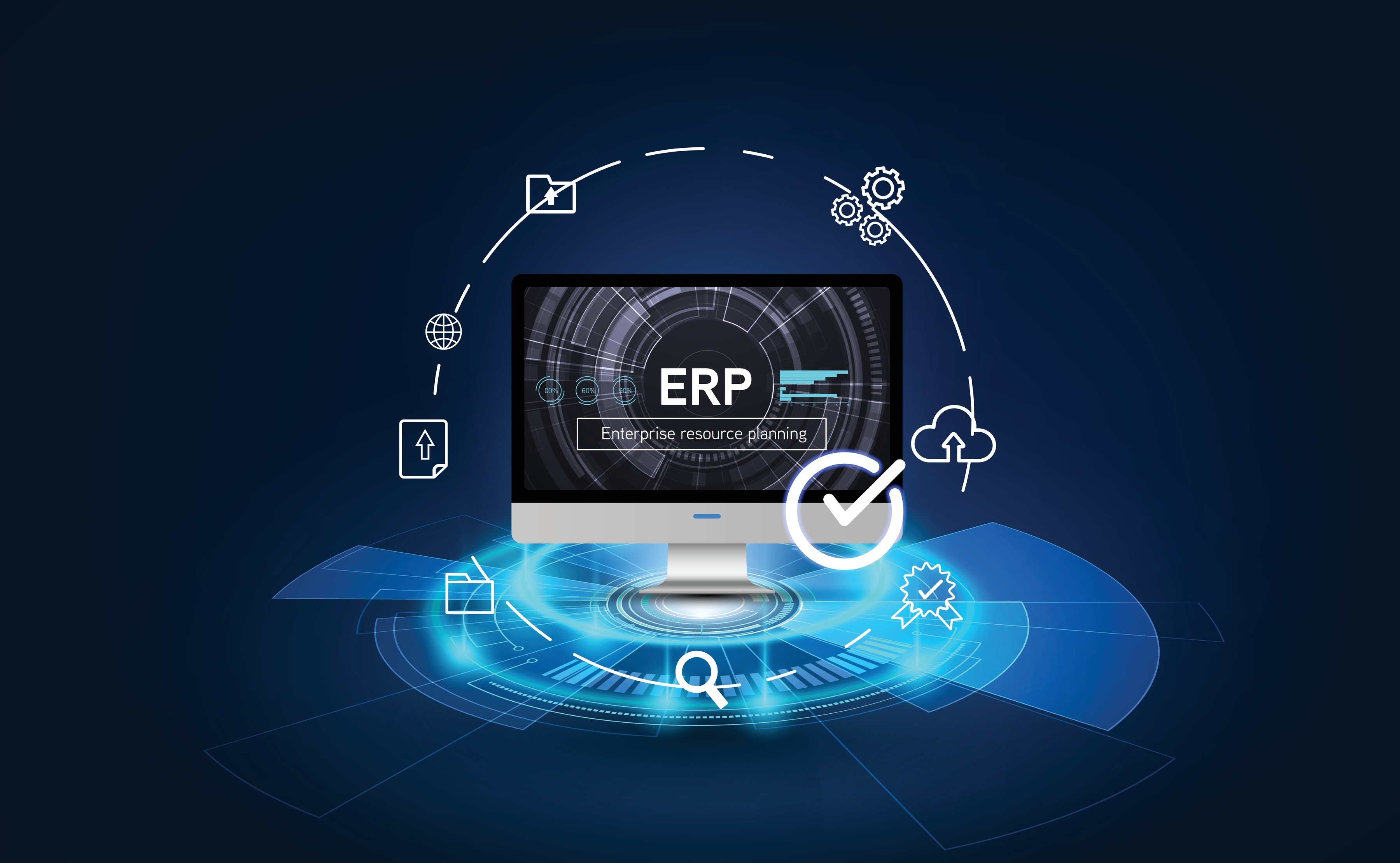ERP refers to a type of software used by enterprises, including small businesses to manage day-to-day business activities such as accounting, procurement, project management, risk management and organizational compliance, as well as supply chain processes, also include ERP products among the full range, Enterprise performance management programme that helps plan, budget, predict and report on an organization's financial results and to learn about ERP's advantages and relevance to small businesses, read on.

ERP system function
ERP systems combine many business processes and provide data flow between these business processes. ERP also collects the organization's shared operational data from multiple sources, eliminating data duplication and providing "one-copy" data integration.
ERP is crucial in managing thousands of companies of all sizes in every industry today, for these companies ERP software is just as indispensable as electric power.
The Importance of ERP's Enterprise Resource System for Small Businesses
Many small businesses need technical assistance to meet customers' demands for faster refurbishment and delivery of products, better quality and better service, by adopting the best erp software, which allows the following:
1. Consolidation of sections
ERP enables you to connect and integrate all sections into your company, so you can easily share data and information between sections to streamline processes.
2. Increased productivity
ERP enhances productivity without hiring new staff or expanding operations by automating processes, eliminating redundant business, and increasing store efficiency.
3. Increased sales
ERP directly affects small business sales, as the high level of agility allows salespeople to react immediately to win sales that might otherwise be delayed, while risking never achieving their results.
Through ERP, customers will receive a high-quality service better suited to their needs, increasing the number of purchases or contracting services.
4. Acquiring Intelligence
Through ERP you can use accurate data and reporting to track progress, productivity and performance, giving you insight into your business to make better decisions.
5. Reduce operating costs
One of the benefits of ERP is to reduce operational and administrative costs, and using ERP accounting, management processes are improved and business resources are used better, both physical and human.
Employees see how their performance is increased by owning the ERP ERP system, where the system facilitates many day-to-day operations and frees them from tasks that reduce their productivity.
6. Provide dynamic and flexible
ERP provides greater liquidity for operations in SMEs as well. In addition, ERP provides time for employees, as it can be devoted to other tasks that add greater value to the business.
What are ERP modules?
ERP is divided into key modules such as purchase, sales, finance or human resources, and also includes specific task-specific modules, which may be useful for one type of company, but not used in others.
Each company is free to choose which units it wants to use from ERP, excluding those that are not useful or that do not improve its management system.
ERP Types
ERP can be classified on the following three bases:
1. Range
The scope of ERP refers to aspects of work that can be covered, where they can be classified into two types:
Complete ERP system
This ERP accounting system meets a wide range of industries simultaneously.
Industry ERP
This planning benefits you when you want ERP for a few specific industries.
2. Installation & Maintenance
This type of ERP system takes into account where you want to install the software and how you plan to continue it, through two systems:
Cloud ERP System
Cloud ERP gives you access to all essential business functions online, and via the cloud, where you can choose Cloud ERP for small businesses.
Enterprise Resource Planning (ERP) in-house
ERP is an internal ERP system that you can install in your company's website
3. Target Business Size
You can classify ERP systems according to your business size, into the following types:
Level I
These systems are used for millionaire companies, addressing many complex processes and multiple industries.
Upper Level
This level is for SMEs where they can use the best corporate management software by adopting ERP.
Level III
ERP system at this level is essentially dedicated to the needs of a particular industry, and for small businesses, this may be a good idea.
ERP benefits for ERP in general
The main advantage of ERP is that it can establish a relational connection between business processes and ensure consistency and security of data, detailing the benefits of ERP as follows;
- Allows for a more rapid response to threats and opportunities in the market.
- Contributes to reducing inventory costs and retention costs while effectively managing and controlling inventory.
- Ensures the joint and effective use of production and distribution resources such as materials, labour, machinery, equipment and information between regions and/or workplaces.
- Allows real-time profit, loss and cost analysis.
- Contributes to increased competitiveness through rapid response to changing production conditions.
- It can simulate potential outcomes by creating typical scenarios (simulations).
- Improves customer service levels and increases customer satisfaction.
- Different functions, units and companies that implement the best ERP system create central coordination of activities in different countries, eliminating language, geography and time limits, therefore, the manager can easily monitor the different activities of a factory in another country from his/her location.
- The customer with ERP system can connect to one module, place his order online, then follow the application progress, since the system is uniform, the information is the same throughout the entire organization.
- ERP not only integrates the entire organization from one end to another, but also provides information for related functions that want to work more effectively.
- A more efficient use of resources can be achieved by providing integrated and integrated information with the ERP system. Thus, more value added can be obtained using less resources.
- ERP enables more accurate and consistent reporting automatically.
- Thanks to the integration of high-level information resulting from faster access to the latest information, it is ensured that the organization interacts immediately with market formations, customers and the business world.
Conclusion:
From the foregoing, we can conclude that using ERP is essential for companies in general, including small ones that want to improve their management processes and productivity, as the system helps them to streamline information and make it centrally available.
Another Topics :
Implementation of government projects
Automation of automated processes
References:
1. << Basic benefits of choosing an effective ERP system >>, readwrite
2. << Using ERP systems in business >>, enterprise

Add New Comment